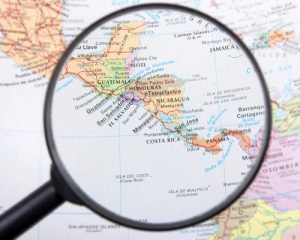
U.S. Reps. Michael McCaul (R-TX) and John Moolenaar (R-MI) led a bipartisan resolution last week that reaffirms congressional efforts to combat government corruption in Central America.
The United States has supported initiatives to counter corruption that have advanced in Guatemala, Honduras, and El Salvador.
The resolution states that U.S. policy must make fighting corruption in Central America a priority, and the Mission to Support the Fight against Corruption and Impunity in Honduras (MACCHI) and the International Commission Against Impunity in Guatemala (CICIG) are important contributors to those efforts.
“A more stable and prosperous Central America means a more secure homeland,” McCaul, the chairman of the Homeland Security Committee, said. “As such, the importance of our continued focus on strong partnerships and enhanced governance in the Northern Triangle cannot be overstated. I am proud to stand with my colleagues in Congress on this united front and look forward to building off the gains made over the years to root out corruption, crackdown on illicit activities like narcotics and human trafficking, and bring increased opportunity and prosperity to the region.”
The resolution states that the governments of Honduras, Guatemala and El Salvador should cooperate with MACCIH and CICIG and the attorneys general of their respective regions to root out corruption.
U.S. Reps. Norma Torres (D-CA), Eliot Engel (D-NY) and Albio Sires (D-NJ) joined McCaul and Moolenaar in introducing the resolution.
“I join Congresswoman Torres in support of this resolution,” Moolenaar said. “It is a strong signal to our friends and allies in Central America that the United States is aware of the challenges they face and is ready to support them in creating a better future for their countries.”
Torres, a member of the House Foreign Affairs Subcommittee on the Western Hemisphere, said fighting corruption is a key to progress on issues facing Central America, including drug and human trafficking, reducing sexual violence and creating greater economic opportunities.



